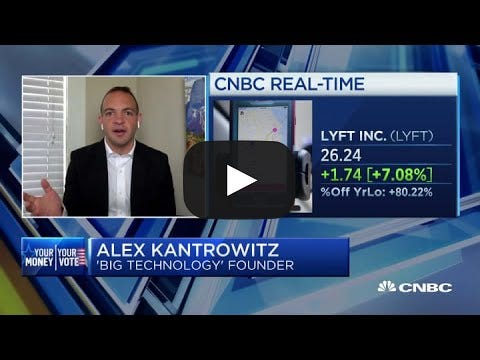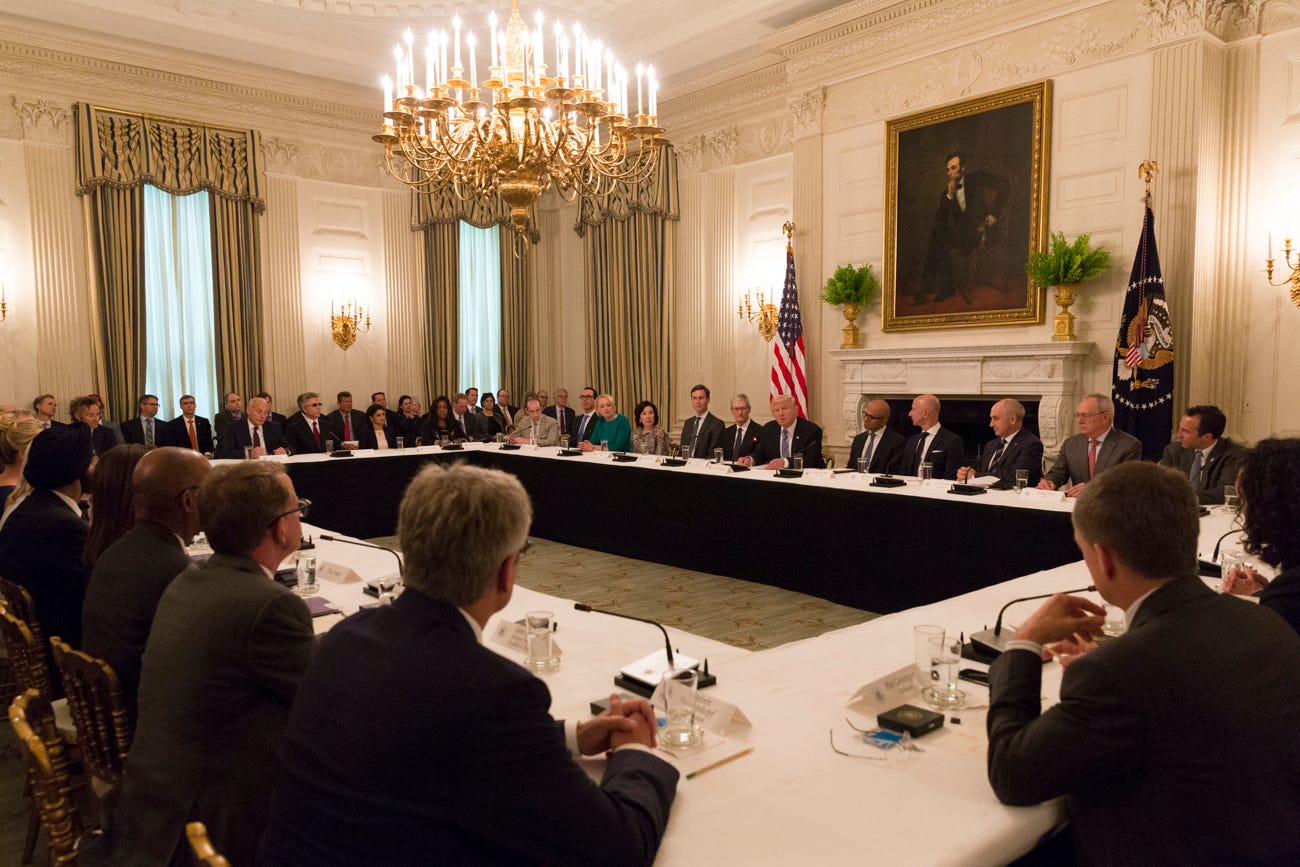Whenever Donald Trump walks out of the White House, he’ll leave behind a changed tech industry, one that let go of its reluctance to act politically during his administration, and will likely never go back.
Silicon Valley, for much of its existence, thrived while asserting its platforms were neutral. Companies argued they simply built technology, and people decided how to use it. The position was convenient, allowing tech firms to welcome almost any user or client without taking responsibility for their actions. And until Trump, it mostly worked.
The platform fallacy came crashing down during the Trump era due to two coinciding factors. The first is that politics became explicitly about morality, and less about policy, in a way it hadn’t in decades. Then, over Trump’s four years, the tech industry boomed, becoming so dominant the government needed it. These elements forced tech companies to decide what could be said on their platforms and which parts of the government they’d work with, setting a lasting precedent.
“I don't think you go back to a pre-political tech, or an apolitical tech,” Daniel Kreiss, an associate professor at UNC’s School of Journalism and Media, told me. “That’s gone.”
Politics in the United States has always had a moral element, but Trump and his opposition explicitly foregrounded it. When Trump called Mexican immigrants rapists, enacted a Muslim ban, and authorized a family separation policy, people felt compelled to take sides. Soon, everything under Trump got a moral frame, and politics, to many, became about right and wrong.
“All sorts of formerly nonmoral issues are now moral issues, whether that applies to immigration policy, progressive tax reform, or a Green New Deal,” Kreiss said. “People see the opposing side in deeply immoral or amoral terms.”
With everything viewed through a moral lens, content moderation became ground zero. A practice that previously consisted of keeping spam, harassment, and illegal material off the internet turned into a litmus test, forcing companies to pick where they stood. Some did so explicitly, like Ravelry, a social network for knitters, which banned support for Trump outright. “We cannot provide a space that is inclusive of all and also allow support for open white supremacy,” the previously apolitical company said. Others, like Gab, emerged as pro-Trump social networks. Others still made political choices with a lighter touch, including Etsy, which banned the pro-Trump QAnon from its handcrafted merchandise site.
Facebook and Twitter — with massive user bases that span the political spectrum — long resisted any political involvement. But both made choices unthinkable before Trump in an attempt to appease both sides. Facebook, playing to its pro-Trump users, made algorithmic changes it knew would hurt liberal Mother Jones and help the conservative Daily Wire. But the company also booted Alex Jones, banned QAnon, and labeled posts from the Trump campaign questioning the election results’ validity, pleasing Trump’s opposition. Twitter, which once called itself the “free speech wing of the free-speech party” spent weeks leading up to the election labeling tweets from Trump and his supporters. And both companies blocked the New York Post’s article about Hunter Biden’s laptop, though mostly due to worries about a repeat of 2016’s foreign interference scandal. Over four years, these platforms went from standing offstage to full-fledged actors.
Since Trump took office, the tech industry has also boomed. Amazon, Apple, Facebook, Google, and Microsoft more than doubled their market caps over the past four years, and many smaller firms shot up as well. The tech boom reached Washington, as digital transformation took hold across the government, which began relying on tech.
With Trump in office, tech companies made choices about which parts of the government they’d work with. When Google’s large, anti-Trump employee base protested its work with the Pentagon under Project Maven, which provided artificial intelligence technology for drones, the company decided not to renew the contract. Meanwhile, Anduril, a defense technology company co-founded by Oculus founder and Trump supporter Palmer Luckey, built itself explicitly to sell to the military, and filled the gap Google left behind.
Working with the U.S. Immigration Customs and Enforcement became another flashpoint for tech firms under Trump. A “No Tech For ICE” movement emerged in the tech industry, along with anti-ICE protests inside tech companies themselves. This September, a Hootsuite employee publicly excoriated her company’s dealings with ICE. And after her tweets went viral, Hootsuite canceled the contract. Palantir, meanwhile, took the opposite approach, working with ICE unapologetically. “The engineering elite of Silicon Valley may know more than most about building software,” Palantir CEO Alex Karp wrote in his company’s filing to go public. “But they do not know more about how society should be organized or what justice requires.”
When it comes to labor rights, tech companies also took sides, as evidenced by the Proposition 22 ballot initiative in California that prevented Uber, Lyft, and Doordash drivers from obtaining employee status. “Here's an example of tech companies relying on huge scale trying to thwart regulation,” Swati Mylavarapu, managing partner at the investment firm Incite.org, told me. “It puts them in a position to move forward on a proposition that you could argue might be counter to some of the values a lot of the individual members of our tech community hold.”
Writing for Pull Request, tech worker and commentator Antonio Garcia-Martinez recently said, “Our entire society down to the level of individual companies and publications will now be labeled in one of two political colors.” And while that may be too strong for some, Trump undeniably drove the tech industry into the political fray, and it’s going to be extremely difficult to pull out now.
This week on the Big Technology Podcast: Election results breakdown with the Daily Beast editor-in-chief Noah Shachtman
As the election results came in, Noah Shachtman, the editor-in-chief of the Daily Beast, joined the Big Technology Podcast for an 'Emergency' show to dive into the results, the future of the Democratic Party, and how the tech platforms handled the election.
You can listen on Apple Podcasts, Spotify, and Overcast.
This week on CNBC: Talking California’s Prop 22
This week, I joined The Exchange on CNBC to discuss the Prop 22 ballot initiative that Uber, Lyft, and Doordash pushed forward to exempt their workers from employee status. The initiative was already on its way to a victory, and I spoke with Kelly Evans on Election Day about what it will mean.
I have one additional thought here: It is interesting the ballot garnered so much support among California’s fairly liberal population, even with the companies outspending their opposition 10-1. Seeing this, I wonder whether the government can effectively regulate tech companies whose products people really like, as they do Uber and Lyft. This factor could have major implications as big tech regulation heats up after the election.

See you next Thursday.


